Irina Szmelskyj, a national award-winning acupuncturist, lecturer and author with 20 years of experience in obstetric acupuncture. Based in Impington (Histon), Cambridge.
Congratulations on your pregnancy!
The miracle of growing another human being inside you, seeing your body transform into a sacred ground that nurtures and grows your baby, and anticipating the first time you hold your baby in your arms- pregnancy… is a magical time in many people’s lives.
However, pregnancy can also lead to a number of unwanted symptoms that can make it difficult for you to enjoy your pregnancy. Fortunately, obstetric acupuncture can help to alleviate many of these symptoms.
Pregnancy Symptoms Acupuncture Can Help
Morning sickness is a common pregnancy complaint. It is usually mild and passes quickly. But, sometimes, severe nausea and vomiting (hyperemesis gravidarum) can make it difficult to keep food and fluids down. At its worst, it requires urgent hospitalisation.
Several randomised controlled trials showed that acupuncture effectively reduces symptoms of nausea and vomiting during pregnancy. On the basis of this research, the World Health Organisation and The Royal College of Obstetricians and Gynaecologists recommend acupuncture for pregnancy nausea and vomiting.
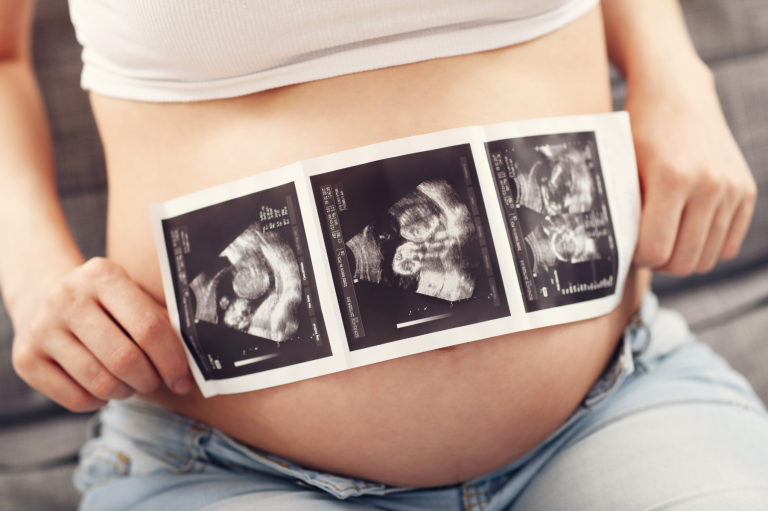
Many pregnancies are accompanied by aches and pains. This can range from mild back and neck pain to sciatica, carpal tunnel syndrome or pubic symphysis dysfunction. Acupuncture is an effective treatment for many of these aches and pains.
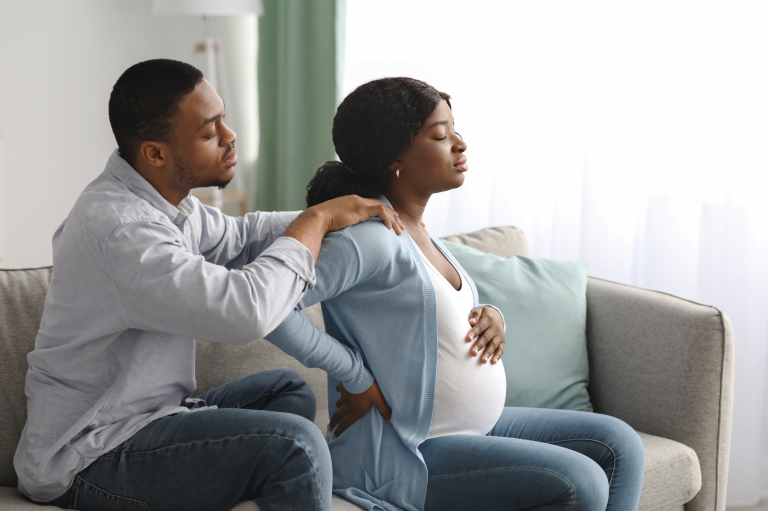
Pregnancy hormones can cause softening of ligaments and muscles in the back, leading to back pain. Acupuncture can help relieve it by stimulating certain acupuncture points that improve blood circulation and promote relaxation in the muscles and other soft tissue. This, in turn, helps to relieve stiffness and pain in the back.
Pelvic pain is a common pregnancy symptom. It can present as a sharp or dull pain in the lower back, pubic area, or hips. Acupuncture can help reduce pelvic discomfort and pain by releasing specific points in the affected muscles and ligaments and improving local blood circulation.
Headaches and migraines can be caused by stress, hormonal imbalances, or other pregnancy-induced changes in the body. Acupuncture is one of the most effective treatments for headaches and migraines and can help reduce the frequency, intensity, and duration of these debilitating symptoms.
In the UK, The National Institute for Health and Care Excellence (NICE) recommend acupuncture as one of only four effective treatments for the prophylaxis of headaches and migraines.
Fatigue is another common symptom of pregnancy. In early pregnancy, it is caused by increased demands on the body. In late pregnancy, carrying more weight and difficulty getting restful sleep can add to exhaustion.
Acupuncture helps to improve energy levels by regulating hormones like cortisol, which is responsible for sleep-wake cycles and energy levels. Acupuncture also increases endorphin levels, which helps to promote general well-being.
It is not uncommon for pregnant women to experience insomnia or other sleeping difficulties, especially in the third trimester.
Acupuncture can help to restore balance and promote restful sleep by calming the mind and releasing tight muscles that can make it difficult to find a comfortable sleeping position.
It’s normal to experience a range of emotions during pregnancy, from joy and excitement to anxiety and depression. Acupuncture can help to regulate hormones like oxytocin, serotonin, and dopamine that are responsible for emotional health and well-being.
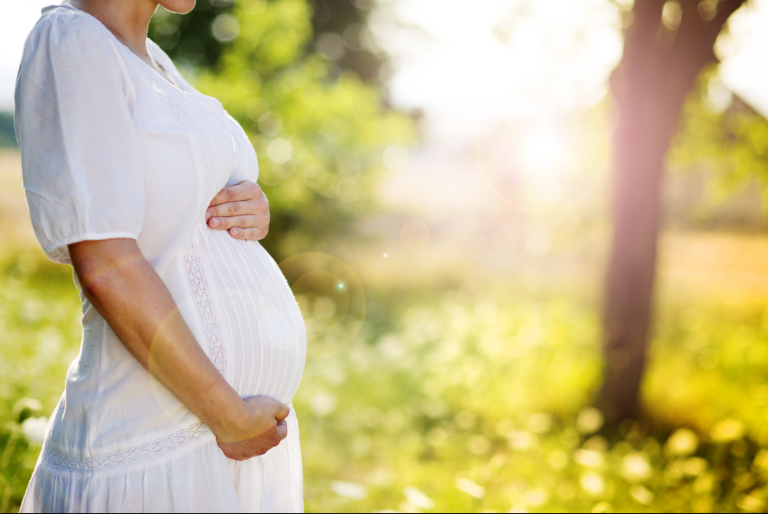
Pregnancy can be a stressful time. With everything that’s going on in your body, as well as all the preparations you have to make for the baby’s arrival, it’s no wonder that many pregnant women experience high levels of stress and anxiety.
Acupuncture can help to calm the mind and reduce stress levels to help you cope better with emotional changes.
Antenatal and postnatal depression is common during pregnancy and after childbirth. Symptoms include overwhelming sadness, tearfulness, loss of interest in everyday activities, and difficulty sleeping.
Research shows that acupuncture can help reduce symptoms of depression by regulating neurotransmitters (serotonin and endorphins) in the brain responsible for mood regulation. It can also promote relaxation, relieve stress and tension, and improve sleep quality – all of which are important factors in managing depression.
It is important to note that acupuncture is not a substitute for conventional medicine in severe or acute mental health cases. If you are experiencing severe depression, make sure to see your doctor first for urgent medical advice and support.
Breech presentation (when the baby is bottom-down instead of head-down in the womb) can complicate delivery. Acupuncture and acupressure are both used to help turn a breech baby into a head-down position.
In a recent 2022 randomized controlled trial, 138 breech presentation patients were randomly assigned into two groups: acupressure and control (routine care). 83% of breech babies in the acupressure group turned to a cephalic (head down) position, compared to only 17% in the control group.
Acupuncture can be beneficial in the third trimester of pregnancy to help prepare your body for labour. It will gently guide your body and mind into a relaxed state and help regulate hormones to promote the onset of labour.
A recent analysis of data from The Whittington Hospital (London, UK), where weekly acupuncture is administered in the third trimester as part of the NHS maternity service, found that patients who received acupuncture:
Acupuncture labour induction is rarely necessary if regular acupuncture is administered regularly during the third trimester of pregnancy. However, if medically necessary, acupuncture can be used to induce labour in combination with other methods, such as membrane sweeping and induction medication. Acupuncture is thought to help start labour by stimulating the release of oxytocin, which helps to relax and soften the cervix. It can also increase blood flow to the uterus, which may help stimulate contractions.
Acupressure is a popular form of pain relief during childbirth. It helps to reduce stress levels, relax muscles, and promote endorphin production to block pain signals – all of which are important factors in reducing discomfort during labour. As part of the third-trimester labour preparation treatment, we will teach you and your birthing partner how to use acupressure for pain relief so that you can easily apply it during labour.
Your baby’s arrival is often the most eagerly anticipated day of your pregnancy. But labour can be long and painful, making the process of childbirth a daunting experience for many women.
Studies suggest that acupuncture can help reduce pain, speed up labour, and improve outcomes for both mother and baby.
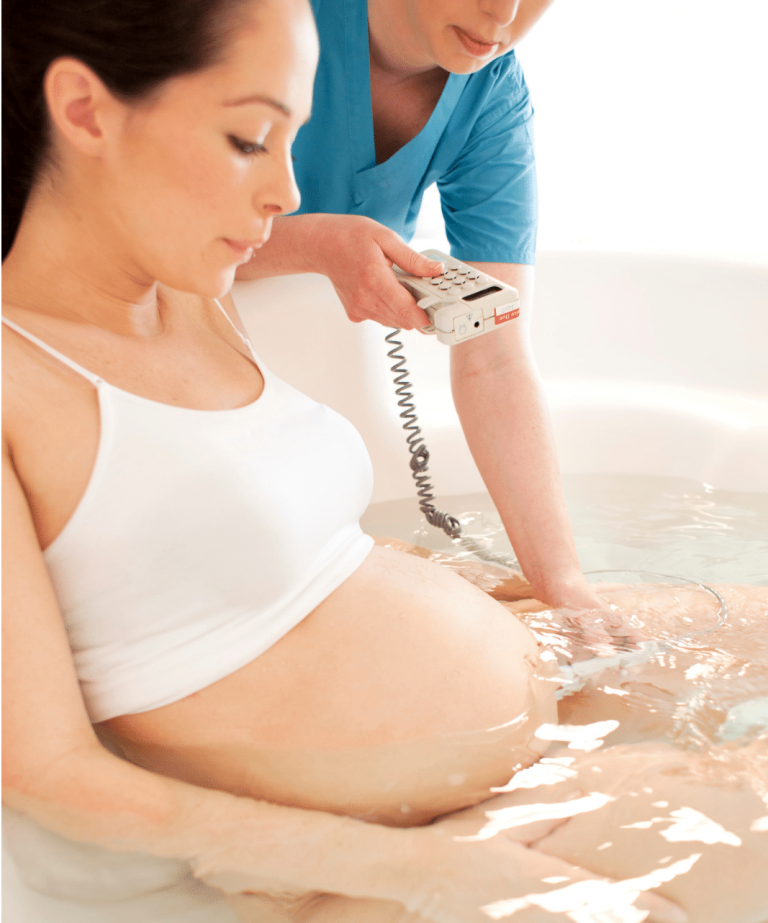
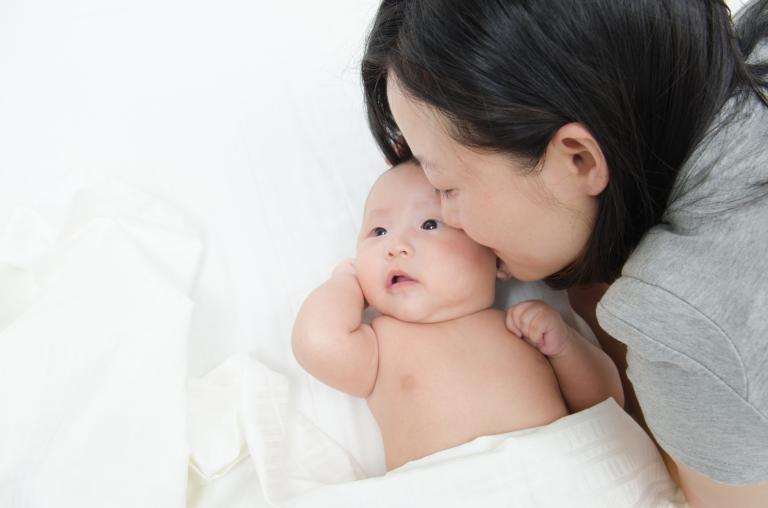
The postpartum period is a time of physical and emotional adjustment as your body recovers from pregnancy and childbirth. Acupuncture can be very helpful in aiding this recovery process. It helps to reduce fatigue and exhaustion, improve circulation, speed up wound healing, regulate hormones, and restore energy levels.
Yes, acupuncture during pregnancy is safe if administered by a fully qualified acupuncturist. Several systematic reviews and randomised controlled trials have shown that acupuncture is a safe and effective treatment for many pregnancy-related health conditions when administered by a degree-level qualified acupuncturist.
For a more detailed discussion on this topic, you can read a comprehensive article, Is Acupuncture Safe During Pregnancy?
No, acupuncture should not be painful. Acupuncture needles are very thin (about the thickness of human hair), and you may only feel a slight prick or stinging sensation when the needles are inserted.
Obstetric acupuncture can be beneficial throughout the pregnancy. It is especially helpful in the first trimester to help with morning sickness, fatigue, and other common pregnancy symptoms. Acupuncture can also be used later in the pregnancy to help prepare for labour and delivery.
The frequency of treatments typically depends on the individual, but it is generally recommended to receive acupuncture treatments once a week during the first trimester and once or twice a week in preparation for labour. Our acupuncturists will discuss the best treatment plan for you.
Yes, many health insurance plans do cover acupuncture treatments for pregnancy-related health conditions. Please contact your insurance provider for more information about your policy coverage and benefits.

Book an Appointment